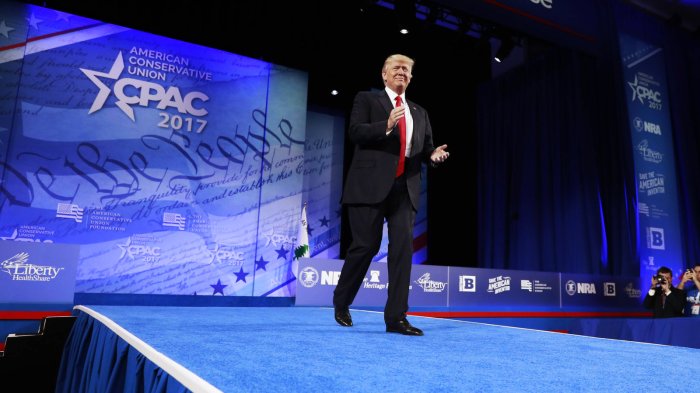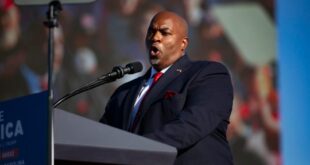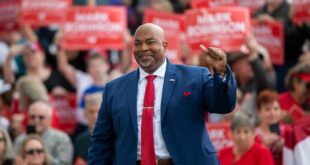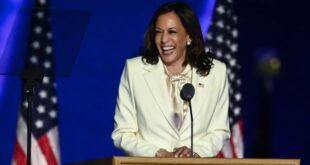Trump unlikely to get a majority in the Senate needed to politicize the Fed – this statement holds weight in the current political landscape. The composition of the Senate, with its potential shifts in the 2024 elections, plays a crucial role in determining the fate of the Federal Reserve’s independence.
This independence, a cornerstone of American economic stability, has been a subject of debate, with calls for increased political control over the Fed gaining traction. However, the potential consequences of politicizing the Fed are significant, raising concerns about the impact on inflation, interest rates, and the overall health of the economy.
The historical context of the Senate’s role in shaping economic policy sheds light on the delicate balance between political influence and economic stability. The Fed, designed to operate independently, has traditionally navigated the complexities of monetary policy without succumbing to short-term political pressures.
This autonomy has allowed the Fed to make decisions based on long-term economic considerations, fostering confidence in the financial markets. However, recent calls for increased political control over the Fed have sparked a debate about the potential benefits and risks of such a shift.
The Current Political Landscape
The Senate, often referred to as the “upper chamber” of the U.S. Congress, plays a crucial role in shaping the nation’s economic policies. Understanding the current political landscape in the Senate is essential to grasp the potential trajectory of economic policy in the coming years.The composition of the Senate, with its 100 members, is a dynamic entity, constantly evolving with each election cycle.
The current Senate composition, as of November 2023, is closely divided, with a slim majority held by the Democrats. However, this delicate balance is likely to be challenged in the upcoming 2024 elections.
The Potential Impact of the 2024 Elections
The 2024 elections are expected to significantly impact the Senate’s composition. The outcome of these elections will determine which party controls the Senate, which in turn will influence the direction of economic policy. Historical trends suggest that midterm elections often result in shifts in control of the Senate, with the party in power typically losing seats.
The 2024 elections could see a shift in power, potentially leading to a Republican majority in the Senate. If Republicans gain control, it could significantly influence the Federal Reserve’s independence, with the potential for more political influence over monetary policy.
The Senate’s Role in Shaping Economic Policy
The Senate plays a pivotal role in shaping economic policy, holding considerable power over legislation related to fiscal policy, monetary policy, and financial regulation. The Senate’s confirmation power extends to the appointment of key economic policymakers, including the Chair of the Federal Reserve.
“The Senate has a long history of influencing economic policy, dating back to the early days of the Republic. Its role in confirming the President’s nominees to key economic positions, as well as its oversight of the Federal Reserve, makes it a significant player in shaping the nation’s economic direction.”
The Senate’s influence on economic policy is not limited to its confirmation power. The Senate also plays a crucial role in crafting and passing legislation related to economic issues, such as tax policy, spending, and regulation. For instance, the Senate’s approval is required for any legislation related to the Federal Reserve’s budget or the appointment of its board members.
This influence extends to the Fed’s independence, as the Senate can influence the appointment of the Chair and other board members, potentially shaping the Fed’s approach to monetary policy.
The Fed’s Independence

The Federal Reserve’s independence from political influence is a cornerstone of the US economic system. This independence has been a key factor in maintaining stable prices and promoting economic growth over the decades.
Historical Significance of the Fed’s Independence
The Fed was created in 1913 to address the instability of the banking system, which was prone to panics and recessions. The founders of the Fed recognized the need for a central bank that was insulated from political pressure, allowing it to make decisions based on economic data and sound monetary policy principles rather than short-term political considerations.
The Fed’s independence has been enshrined in law and upheld by the courts.
Consequences of Politicizing the Fed
Politicizing the Fed could have significant consequences for the US economy.
Potential Risks
- Short-term political gains could overshadow long-term economic stability. Politicians might be tempted to use the Fed to stimulate the economy in the short term, even if it means risking inflation or asset bubbles. This could lead to a cycle of boom and bust, harming the economy in the long run.
- The Fed’s credibility could be undermined. If the Fed is seen as being influenced by political considerations, it could lose the public’s trust, making it more difficult to implement effective monetary policy. This could lead to higher interest rates and a weaker economy.
- The Fed could become a tool for political gain. Politicians could use the Fed to reward their supporters or punish their opponents, further eroding public trust in the institution and undermining its effectiveness.
Historical Examples
- The Great Inflation of the 1970sis often cited as an example of the dangers of political interference in monetary policy. During this period, the Fed was pressured by politicians to keep interest rates low to stimulate the economy, even as inflation was rising. This ultimately led to a period of high inflation and economic instability.
- The Latin American debt crisis of the 1980sis another example of how political interference in monetary policy can have negative consequences. Many Latin American countries in the 1980s were forced to borrow heavily from international lenders to finance their spending. When interest rates rose, these countries were unable to repay their debts, leading to a financial crisis.
Potential Benefits of Increased Political Control
- Greater accountability. Some argue that increased political control over the Fed would make it more accountable to the public. This could lead to more transparency and better communication from the Fed.
- Faster response to economic crises. Others argue that increased political control would allow the Fed to respond more quickly to economic crises. This could be particularly important in situations where immediate action is required to prevent a recession.
Potential Consequences of Politicizing the Fed: Trump Unlikely To Get A Majority In The Senate Needed To Politicize The Fed
The prospect of a politicized Federal Reserve raises significant concerns about the potential consequences for the U.S. economy and financial markets. A shift towards political influence could undermine the Fed’s independence and its ability to effectively manage monetary policy, potentially leading to unintended and damaging outcomes.
Impact on Inflation, Interest Rates, and Economic Growth
A politicized Fed could be more susceptible to short-term political pressures, potentially leading to decisions that prioritize immediate gains over long-term economic stability. This could result in:* Increased Inflation:Politicians may be tempted to pressure the Fed to keep interest rates low to stimulate economic growth, even if it risks fueling inflation.
Volatile Interest Rates
Frequent changes in interest rates, driven by political agendas, could create uncertainty for businesses and consumers, hindering investment and economic growth.
Browse the multiple elements of Waller defends Fed’s decision to cut by 50 bps to gain a more broad understanding.
Erratic Economic Growth
Unpredictable monetary policy decisions could lead to swings in economic activity, making it harder for businesses to plan and invest.
Impact on Financial Markets and Investor Confidence
The Fed’s independence is crucial for maintaining investor confidence and stability in financial markets. Political interference could erode this trust, leading to:* Increased Volatility:Investors may become hesitant to invest if they believe the Fed’s decisions are influenced by political considerations, leading to greater volatility in asset prices.
Higher Risk Premiums
Investors might demand higher returns to compensate for the increased uncertainty, potentially raising borrowing costs for businesses and consumers.
Capital Flight
Foreign investors might become less confident in the U.S. economy, potentially leading to capital flight, which could weaken the dollar and harm economic growth.
Scenarios of Political Control Affecting the Fed’s Decision-Making
Several scenarios could illustrate how increased political control could affect the Fed’s decision-making:* Pressure to Lower Interest Rates:During an election year, politicians might pressure the Fed to lower interest rates to boost economic growth and improve their chances of re-election, even if inflation is a concern.
Targeting Specific Industries
Politicians might attempt to influence the Fed to favor certain industries, such as by providing them with preferential access to credit, potentially distorting market forces.
Political Appointments
Politicians might appoint Fed officials who are more likely to support their policies, rather than those with the most expertise and experience in monetary policy.
Arguments for and Against Politicizing the Fed
The debate over whether the Federal Reserve should be politicized is a complex one, with compelling arguments on both sides. The potential benefits and drawbacks of politicizing the Fed have significant implications for the U.S. economy and the role of government in financial matters.
Potential Benefits and Drawbacks of Politicizing the Fed
The decision to politicize the Fed involves weighing the potential benefits against the potential drawbacks.
- Increased Accountability:Proponents argue that making the Fed more accountable to elected officials would increase transparency and responsiveness to the needs of the people. By bringing the Fed under the direct control of Congress, the public would have a greater say in monetary policy decisions.
- Improved Coordination with Fiscal Policy:Politicizing the Fed could potentially lead to better coordination between monetary and fiscal policy. This could enhance the effectiveness of economic policy by aligning the Fed’s actions with the government’s fiscal objectives.
- Greater Influence on Economic Outcomes:Advocates for politicization believe that it would allow elected officials to exert greater influence on economic outcomes. This could lead to more direct intervention in areas such as employment, inflation, and economic growth, potentially achieving desired results faster.
- Risk of Political Interference:Opponents argue that politicizing the Fed could lead to undue political interference in monetary policy decisions. This could result in decisions driven by short-term political considerations rather than long-term economic stability.
- Erosion of Independence:Politicizing the Fed could undermine its independence, which is crucial for maintaining confidence in the financial system. This could lead to a decline in the credibility of the Fed and its ability to effectively manage inflation and economic growth.
- Increased Uncertainty and Volatility:Critics argue that politicizing the Fed could introduce more uncertainty and volatility into the economy. This could make it more difficult for businesses to plan for the future and for investors to make informed decisions.
Potential Consequences of Politicizing the Fed Under Different Political Scenarios
The potential consequences of politicizing the Fed would vary depending on the political climate and the specific political actors involved.
| Scenario | Potential Consequences |
|---|---|
| A highly partisan political environment | Monetary policy decisions could become highly politicized, potentially leading to economic instability. The Fed could be used as a tool to advance partisan agendas, with little regard for the long-term health of the economy. |
| A period of economic crisis | Politicizing the Fed could exacerbate the crisis by undermining confidence in the financial system. This could lead to a decline in investment and economic activity, further deepening the crisis. |
| A period of political stability | Politicizing the Fed could lead to more effective coordination between monetary and fiscal policy, potentially promoting economic growth and stability. However, this outcome would depend on the ability of political actors to prioritize long-term economic objectives over short-term political gains. |
Alternative Approaches to Economic Policy
The debate surrounding the politicization of the Federal Reserve highlights the need for alternative approaches to economic policy that can achieve economic stability and growth without compromising the Fed’s independence. These approaches aim to address concerns about the Fed’s influence on monetary policy, while also promoting transparency and accountability.
Fiscal Policy Strategies, Trump unlikely to get a majority in the Senate needed to politicize the Fed
Fiscal policy, which involves government spending and taxation, can play a crucial role in influencing economic activity. These strategies can be implemented without directly affecting the Fed’s independence.
- Targeted Spending Programs:Instead of broad-based stimulus packages, policymakers can prioritize spending on specific areas that promote economic growth and address societal challenges. For example, investments in infrastructure, education, and research and development can create jobs, enhance productivity, and foster innovation.
- Tax Reforms:Tax policies can be designed to encourage investment, innovation, and job creation. This could involve reducing taxes for businesses that invest in research and development or providing tax credits for job creation in specific sectors.
- Debt Management:Effective debt management strategies are crucial for ensuring fiscal sustainability. This involves balancing government spending with revenue collection and implementing policies to reduce the national debt over time.
Regulatory Approaches
Regulatory policies can influence economic activity by shaping the behavior of businesses and consumers. These approaches can promote competition, innovation, and efficiency in the economy.
- Deregulation:Reducing unnecessary regulations can lower costs for businesses and encourage investment and innovation. However, deregulation must be carefully considered to ensure it does not compromise consumer protection or environmental standards.
- Competition Policy:Promoting competition in markets can lead to lower prices, higher quality products, and greater innovation. This can involve enforcing antitrust laws, promoting fair trade practices, and removing barriers to entry for new businesses.
- Financial Regulation:Strong financial regulations are essential for maintaining the stability of the financial system. This includes measures to prevent excessive risk-taking, promote transparency, and ensure the safety and soundness of financial institutions.
Structural Reforms
Structural reforms aim to address underlying economic challenges that can hinder growth and stability. These reforms can involve changes to the labor market, education system, or infrastructure.
- Labor Market Reforms:Policies that promote job training, skills development, and workforce flexibility can enhance labor market efficiency and productivity. This could include investments in education and training programs, as well as measures to reduce barriers to entry for new workers.
- Education and Training:Investing in education and training can enhance human capital and improve the long-term economic prospects of individuals and the economy as a whole. This can involve improving the quality of education, expanding access to higher education, and providing job training programs.
- Infrastructure Development:Investing in infrastructure, such as roads, bridges, and public transportation, can create jobs, improve efficiency, and enhance economic competitiveness.
Closure
The potential consequences of politicizing the Fed are far-reaching, impacting inflation, interest rates, economic growth, and investor confidence. While arguments for greater political control over the Fed often cite the need for accountability and responsiveness to public concerns, opponents argue that such a move could lead to short-sighted decisions driven by political expediency rather than sound economic principles.
Alternative approaches to economic policy, such as fiscal measures and regulatory reforms, can be explored to address concerns without compromising the Fed’s independence. Ultimately, the debate surrounding the Fed’s independence hinges on the delicate balance between political accountability and economic stability, a balance that requires careful consideration and a commitment to long-term economic prosperity.
FAQ Overview
What are the potential consequences of politicizing the Fed?
Politicizing the Fed could lead to increased inflation, volatility in interest rates, and potentially harm economic growth. It could also undermine investor confidence and create uncertainty in the financial markets.
What are some alternative approaches to economic policy that could be implemented without politicizing the Fed?
Alternative approaches include fiscal policy measures, such as government spending and tax cuts, as well as regulatory reforms designed to address specific economic challenges. These measures can be implemented without directly affecting the Fed’s independence.
How could increased political control over the Fed affect the Fed’s decision-making process?
Increased political control could lead to the Fed prioritizing short-term political goals over long-term economic considerations. This could result in decisions that are not in the best interests of the economy as a whole.
 CentralPoint Latest News
CentralPoint Latest News




